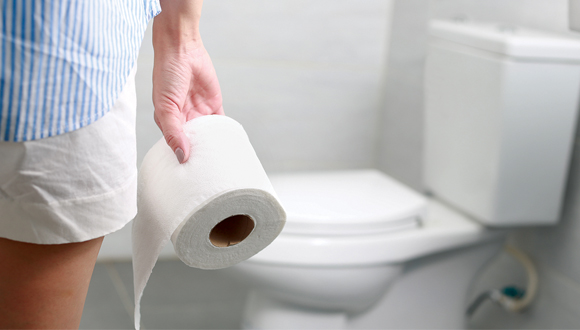It aroused so much dread in the Middle Ages it was assigned a patron saint through whom prayers could be sent seeking divine intervention.
Hundreds of years later, hemorrhoids remains one of the most undesirable of conditions: It makes your backside hurt or itch. Sitting comfortably is no longer easy. Bleeding sometimes accompanies bowel movements.
Fortunately, there are now plenty of over-the-counter remedies to treat the condition. But when those home remedies don't work, medical treatment becomes extremely important.
So when should you see a gastroenterologist? Dr. Sunil Dacha, a Houston Methodist gastroenterologist, is here to explain the appropriate time to schedule an appointment as well as how to prevent and treat hemorrhoids at home.
"Hemorrhoids are normal blood vessels that are present in the anal canal and rectum," says Dr. Dacha. "But they can engorge for various reasons and cause problems."
Those reasons can include chronic constipation, straining during bowel movements and prolonged sitting on the toilet. All interfere with blood flow, which causes it to pool and enlarge the vessels. Pregnancy, when the enlarging uterus presses on the veins, is another cause. Obesity can predispose people toward it. And the risk increases as you get older.
What are the types of hemorrhoids?
There are two kinds of hemorrhoids: internal hemorrhoids, which occur in the lower rectum, and external hemorrhoids, which develop under the skin around the anus. External hemorrhoids are the most uncomfortable, because the overlying skin becomes irritated and erodes. Internal hemorrhoids are largely symptom-free, though they can cause bleeding.
External hemorrhoids
External hemorrhoids reside under the skin around your anus, and occur because of swelling veins. Symptoms can include chronic pain, a struggle to pass stools, itching or irritation and bleeding. The hemorrhoids fill with blood that can clot, known as a thrombosed hemorrhoid, and ultimately are at risk of bursting. This type typically causes the most pain and discomfort.
Internal hemorrhoids
Internal hemorrhoids reside inside the rectum, where you can't see them and rarely feel them. But straining or irritation when passing stool can cause a protrusion of the hemorrhoid through the anal opening. Despite the bleeding, internal hemorrhoids tend to go away on their own.
How can you prevent hemorrhoids?
Eat high-fiber foods — fruits, vegetables and whole grains — which softens the stool, increases its bulk and prevents the sort of straining that can cause hemorrhoids. Try to consume at least 25 to 35 g of high-fiber foods a day.
If you're not able to keep up with the dietary intake, Dr. Dacha recommends over-the-counter fiber supplements like psyllium (Metamucil) or methylcellulose (Citrucel). He also says patients can also take stool softeners like docusate sodium, which keep the stool soft and increase the number of bowel movements.
Exercise is also a good idea. In conjunction with a good diet, staying active can help prevent constipation by reducing pressure on veins, which sometimes occur from standing or sitting for long periods. Taking off excess weight that can contribute to hemorrhoids often helps.
When to see a gastroenterologist
In the U.S., it is estimated that by age 50, about half of the population has experienced one or more of the classic symptoms of hemorrhoids. But only about 4.4% seek treatment for the condition at any one time.
It's fine to start with over-the-counter treatments, says Dr. Dacha.
"There are quite a few over-the-counter treatments that are available for treatment," says Dr. Dacha. "These include steroids like Preparation H, Proctofoam cream and Perineal Ice Packs. Then there is a sitz bath that can shrink the hemorrhoids. So there are quite a few over-the-counter options available for patients."
If none of those work, it's time to see a gastroenterologist. Here are some tell-tale signs:
- Rectal bleeding
- Constant pain
- Stool color change
- Anal lump growth
What to expect at your appointment
Your doctor will diagnose whether you have hemorrhoids based on symptoms and a digital rectal exam, which involves inserting a gloved finger into the rectum to feel for swollen veins. He or she or he may also examine the anal canal with an anoscope, a small, rigid, tubular instrument. If there's bleeding, your doctor may schedule a flexible sigmoidoscopy or colonoscopy.
If the diagnosis confirms hemorrhoids, your doctor may prescribe medications that can reduce the swelling of the anal area and produce an easier bowel movement. Other options are coagulation, a beam of infrared light that destroys internal hemorrhoids; and rubber-band litigation, which shrinks the hemorrhoids by cutting off blood circulation to it.
Surgery, where the excess tissue causing the blood is removed, is only required in a small number of hemorrhoids cases. Such removal is known as hemorrhoidectomy.
In any event, if the symptoms don't go away, Dr. Dacha urges people to see a doctor, not only to confirm a diagnosis of hemorrhoids, but also to eliminate other possible diseases.
"When you see bleeding, it's important to see a gastroenterologist because colon cancer and inflammatory bowel disease also can present with bleeding," says Dr. Dacha. "Unfortunately, we're seeing an increasing amount of colon cancer in young patients. So if you see blood in the stool, it's important to get evaluated and, if there is pain in the anal rectal region from a clot in the hemorrhoids, it needs urgent attention."








